
Comparing these two platforms can be a little tricky because they are essentially in different weight classes. Acumatica provides a cloud-based ERP aimed at small to medium businesses. Brightpearl is built to be a multi-channel retail management system.
Therefore, it is probably more accurate to compare Brightpearl with Acumatica’s Distribution Edition, since they share many of the same features. Here’s a quick comparison of their capabilities:
Kensium has over seven years of experience implementing Acumatica for all types of businesses. Based on our experience, we’ve realized there are specific vital questions that a company needs to answer for themselves when deciding to implement a new back-office software.
Key Question #1: How Are You Managing Your Inventory?
Both Brightpearl and Acumatica give full visibility into inventory levels at any location. Inventory levels are automatically updated in real-time based on inventory sales, warehouse-to-warehouse transfers, returns, and restocks. Other features include changing pricing from the platform and tracking product assembly and raw material inventory.
However, Acumatica’s Distribution Edition does include some additional capabilities:
- Perishable Inventory and Lot/Serial Traceability: Use shelf life and expiration dates to manage perishable inventory with first-expired-first-out (FEFO) picking. Capture and create lot and serial numbers for traceable inventory.
- Sub-Items and Matrix Items: Create and manage matrix items based on size, color, and other attributes and values. Matrix items streamline purchasing and sales processes. Set up sub item codes by SKU to differentiate between product variations such as grade, manufacturer, or other variables.
- Customer and Vendor Items: Define unlimited vendors by item with a preferred default vendor. Set a minimum frequency for deliveries and minimum or maximum order quantities by item for each vendor. Define cross-references between internal, vendor, and customer items.
Key Question #2: How Are You Managing Your Company Finances?
Both Acumatica and Brightpearl have these financial management features:
- General Ledger
- Accounts Payable
- Accounts Receivable
- Banking/Cash Management
- Tax Management
- Multi-Currency Management
- Importing/Exporting Accounting Data
- Integrations
- Financial Reporting
However, Acumatica offers a few more features than Brightpearl:
- Deferred Revenue Accounting: Accurately account for revenue recognition in future periods, in compliance with ASC 606 and IFRS 15.
- Intercompany Accounting and Intercompany Reconciliation: Direct financial reporting, payments, cash management, and inter-entity transfers among multiple entities.
- Mobile ERP Applications: Enable employees to enter time and expense reports, review cases, approve orders, and assign tasks from anywhere, at any time.
- Payroll Management: Handle all payroll functions for your company (or multiple companies) with automated procedures.
Acumatica is the clear winner in terms of functionality.
Key Question #3: What Type Of Hosting Do I Want?
Acumatica offers an ERP solution with a lower total cost of ownership and a choice of deployment options (on-premise vs. cloud). The solution is built on .NET and Microsoft’s server stack and integrates with Microsoft Office 365 and Power BI.
Acumatica can be deployed as a SaaS solution, but you can choose from on-premise and private cloud options. With the SaaS subscription, you pay an annual fee, and a cloud computing provider handles all your IT maintenance. Acumatica charges a one-time licensing fee and a recurring annual maintenance fee for on-premise deployment. It’s worth noting that the vast majority of Acumatica customers opt for the SaaS solution.
Brightpearl implements its solutions exclusively on the cloud, which won’t work for companies seeking an on-premise solution. The main reason companies use on-premise solutions is data security. Confidential medical records, credit card information, or intellectual property are all examples of data that is so sensitive, it needs to be stored in a secure server on site. If your business handles this type of data or will handle it in the future, you may want to have the on-premise option.
Key Question #4: How Will Pricing Affect Me In The Long Term?
Brightpearl is for merchants generating $1M or above in revenue, or those that expect to be generating that much in the next 12 months. They offer two deployment options: A full implementation and their Order Management Solution, which consists of reduced features and a lack of optional extensions.
While Brightpearl follows a standard approach of selling its software directly and through licensed third parties, Acumatica offers a consumption-based pricing model.
A significant benefit of this model is flexibility. Instead of paying for a certain number of seats and hiring an implementation consultant to handle your setup and customization, Acumatica lets you pick and choose your applications, deployment preference, and projected level of consumption—that is, how many transactions you’ll handle and how much data storage you need.
Wrap-Up
Acumatica is a comprehensive ERP that handles all aspects of business. Whether you’re a small manufacturer or distributor with a greater need for flexibility and customization, or a larger organization that needs to manage multiple companies, Acumatica is the best fit.
Kensium has over seven years of experience implementing ERP systems, so if you are still unsure what might be right for you, please contact us for a free consultation.








.png)




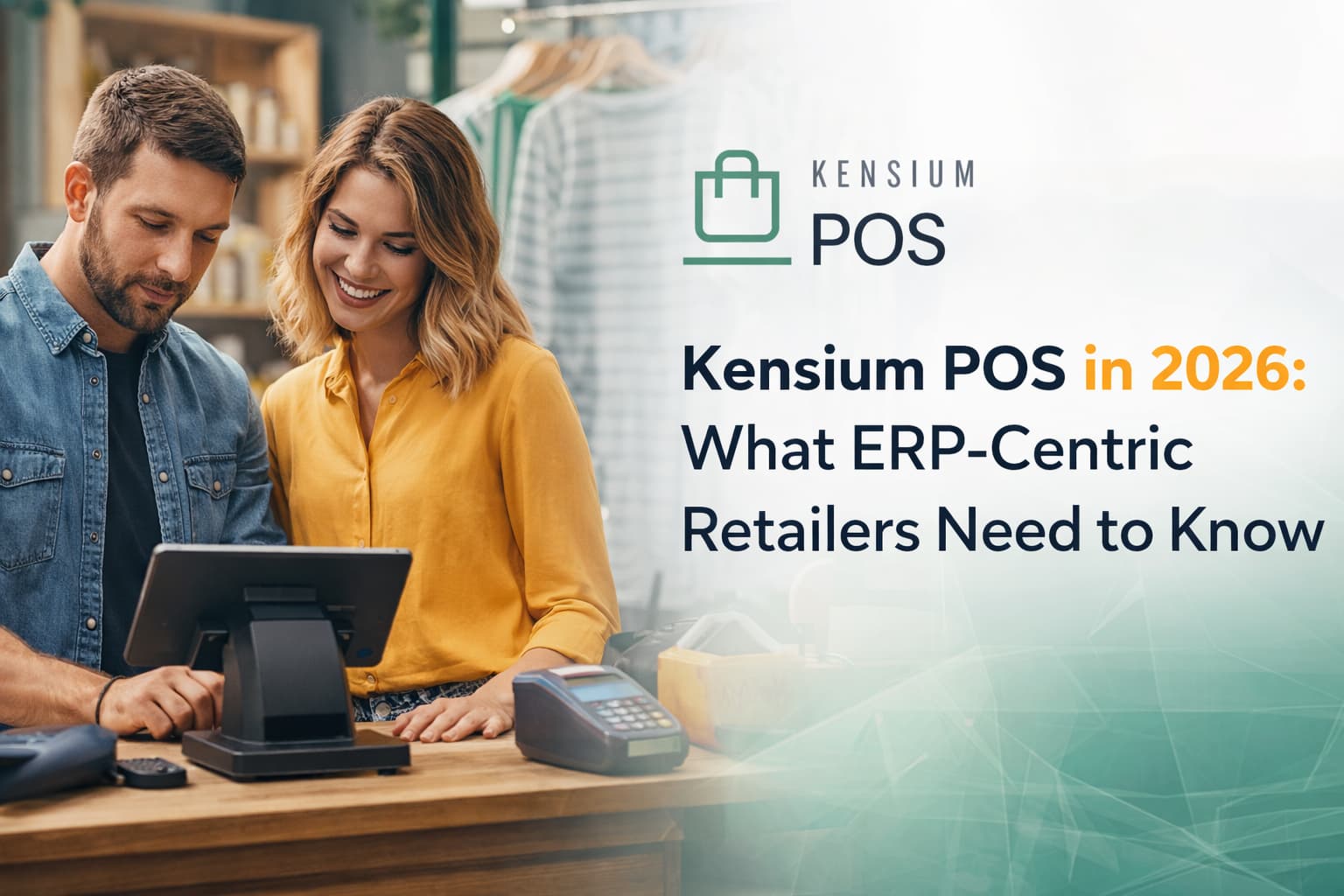





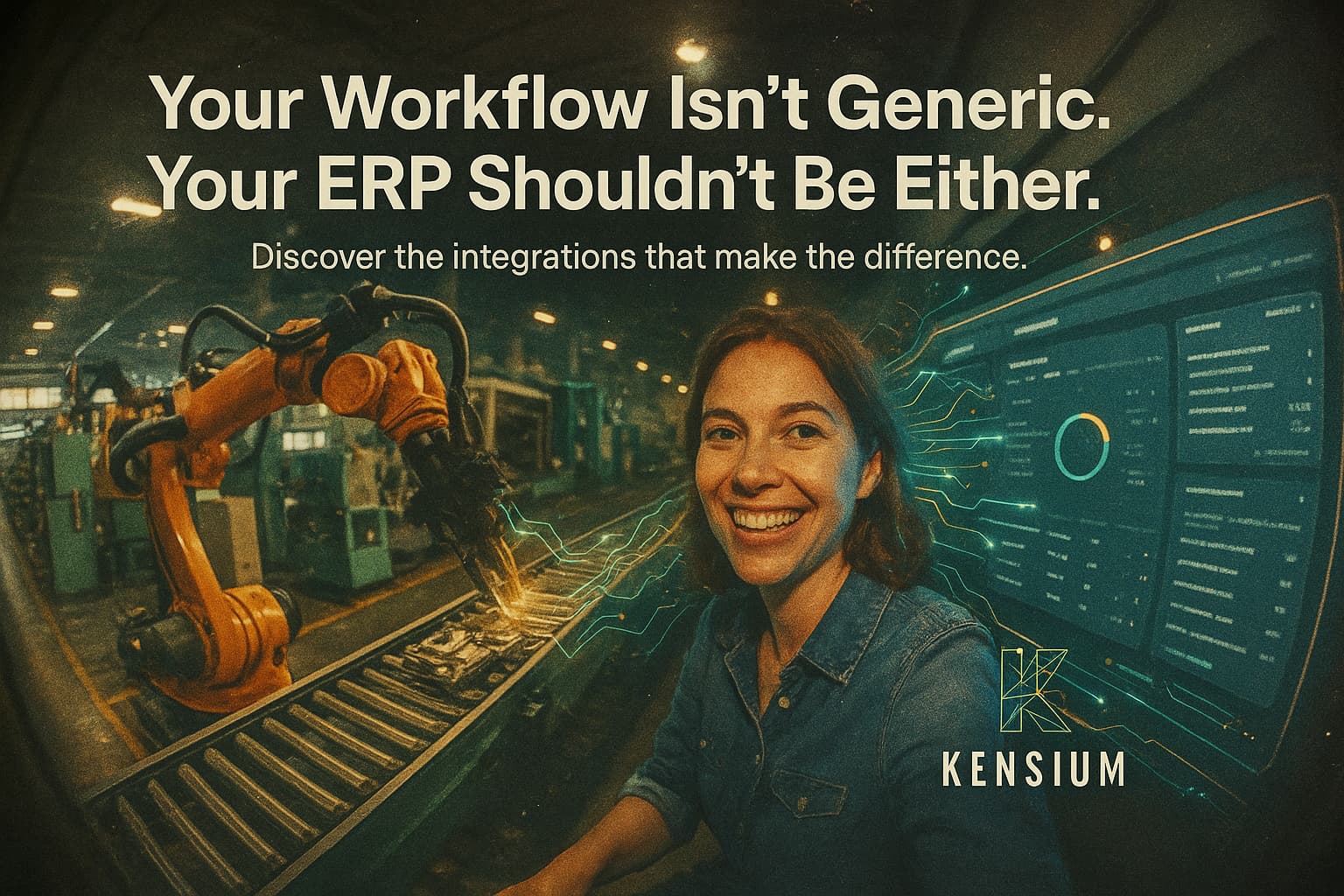
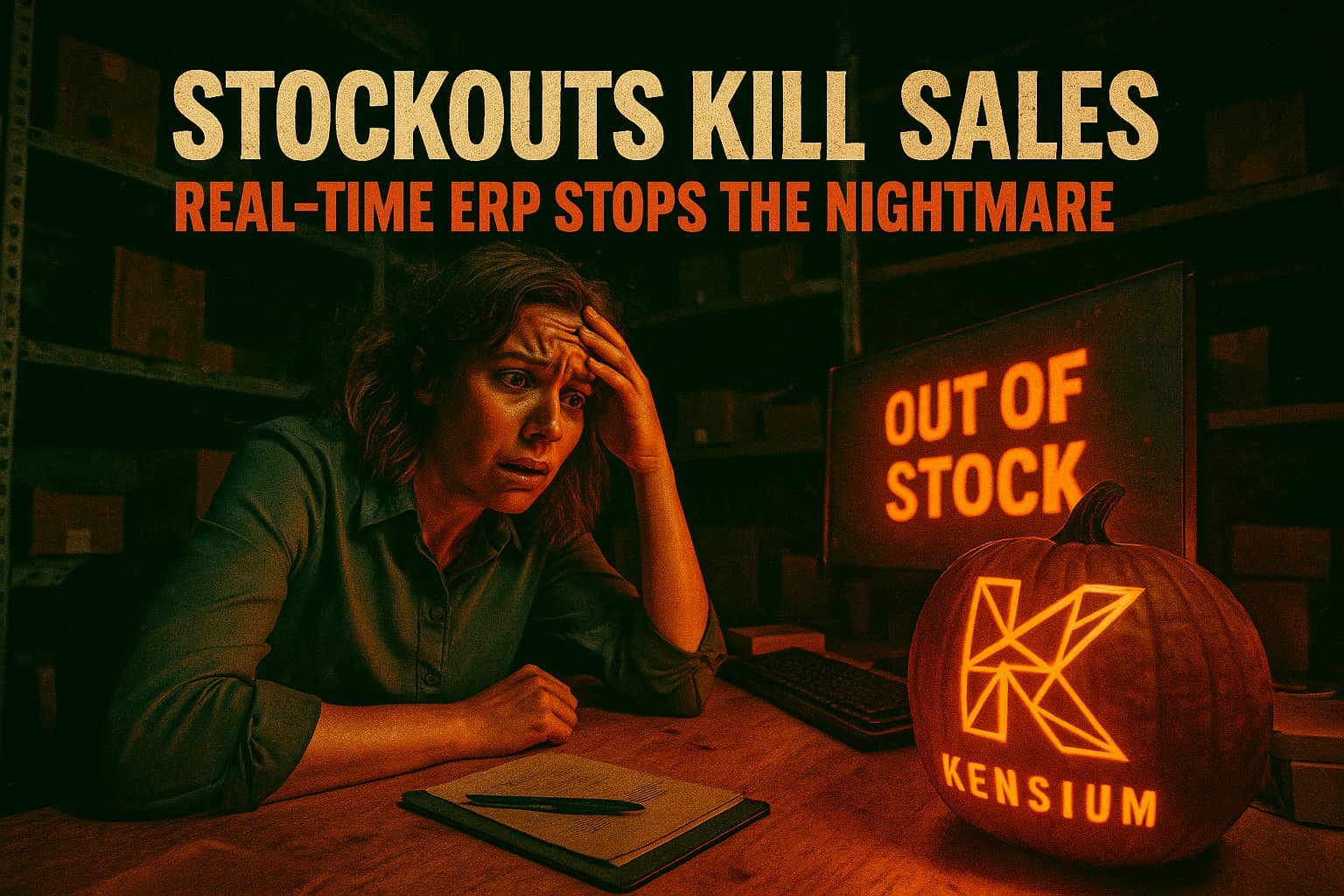
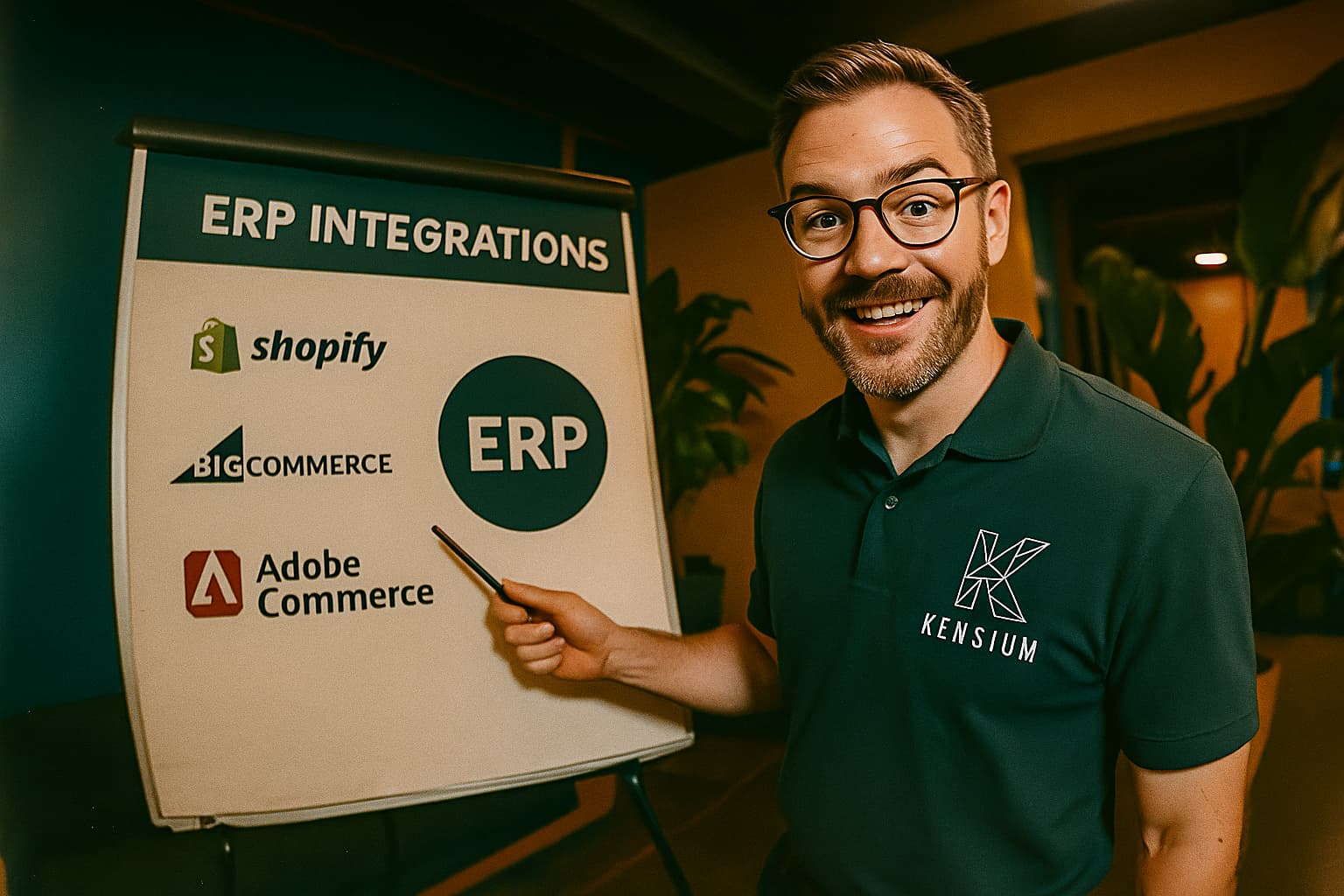

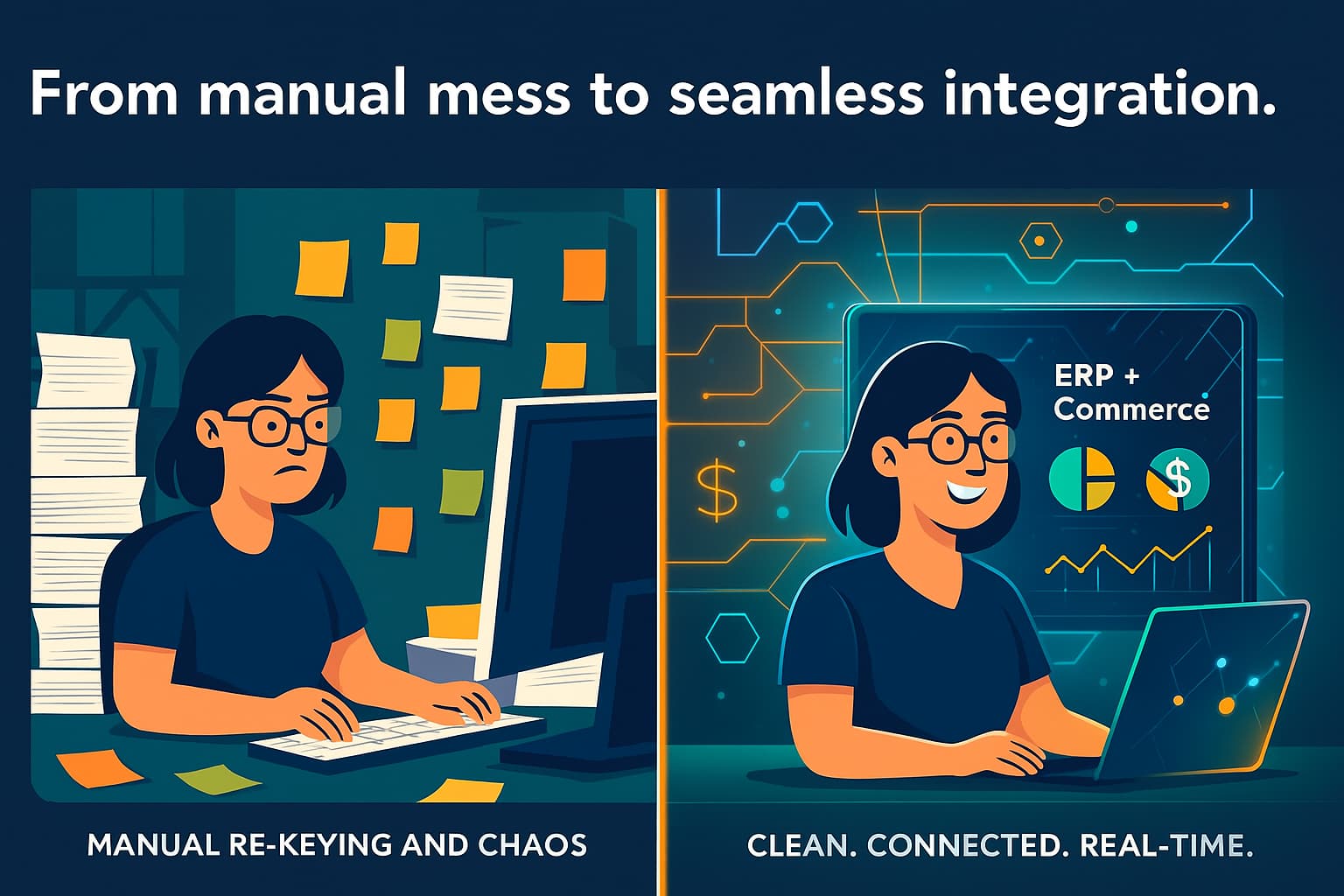

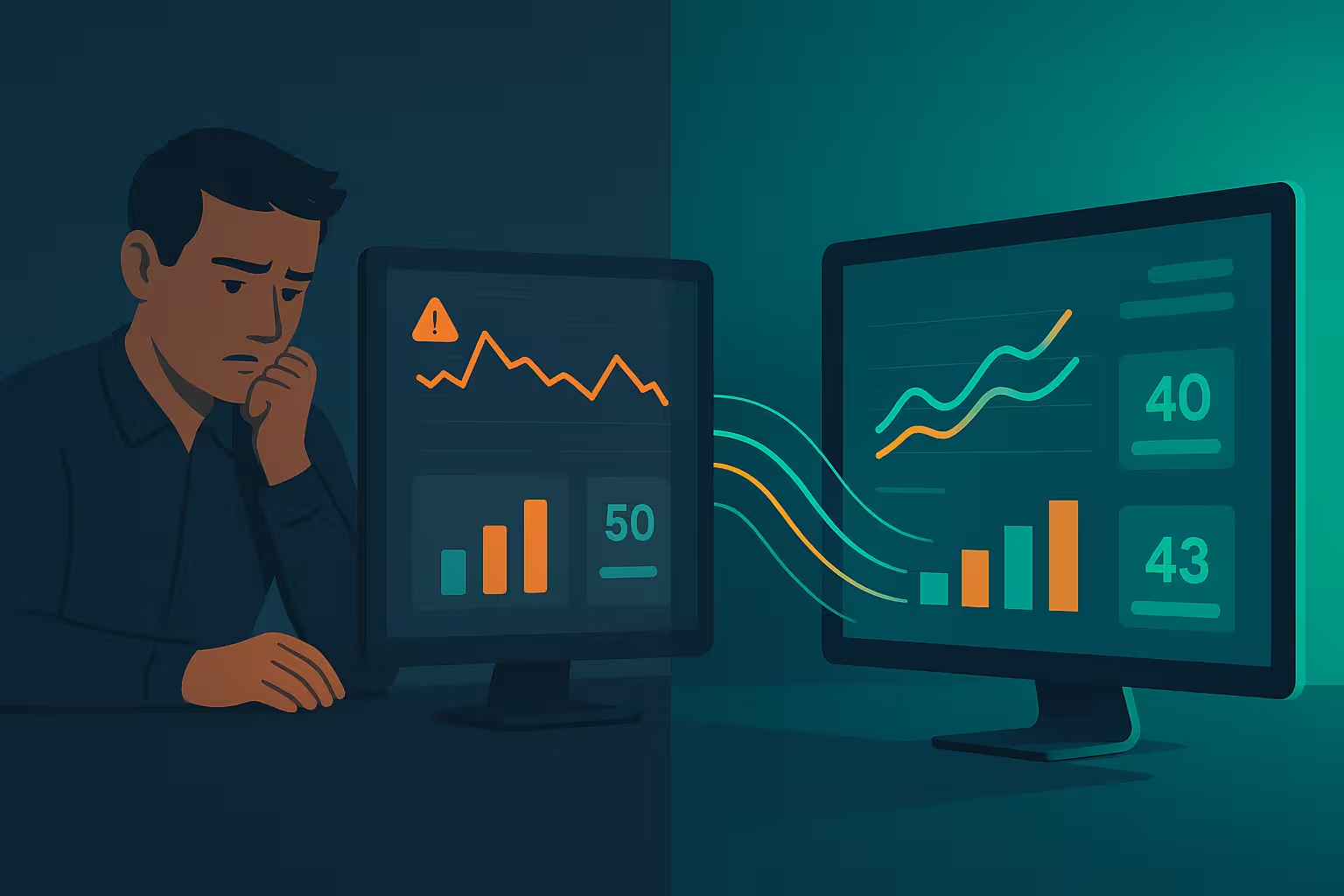














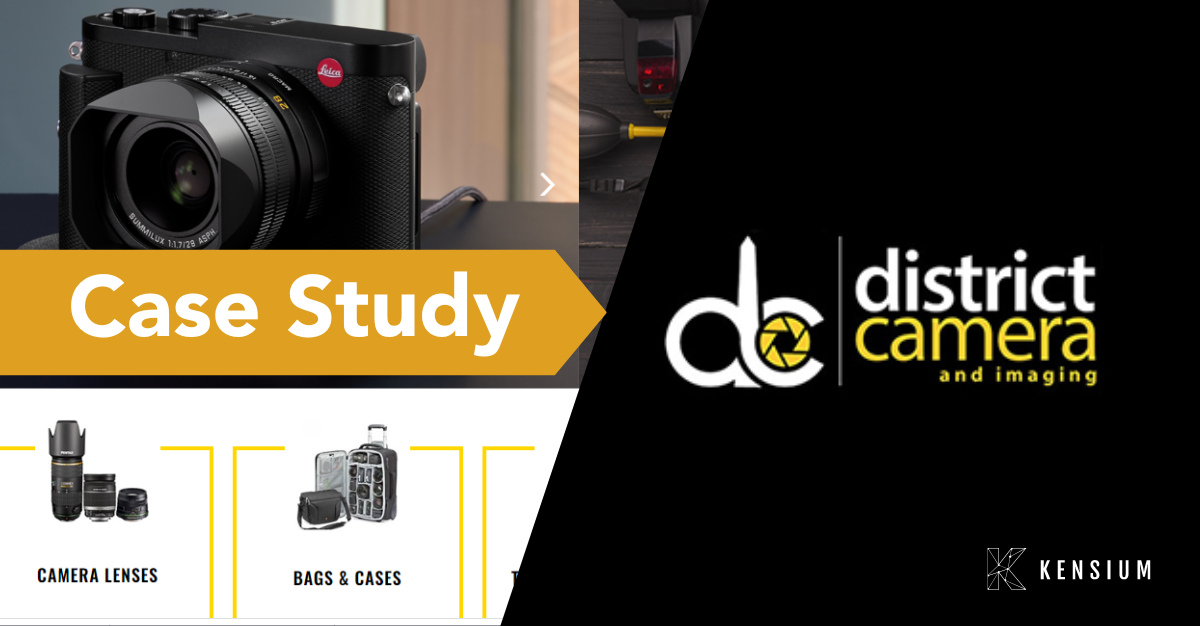



















-small.jpeg)







